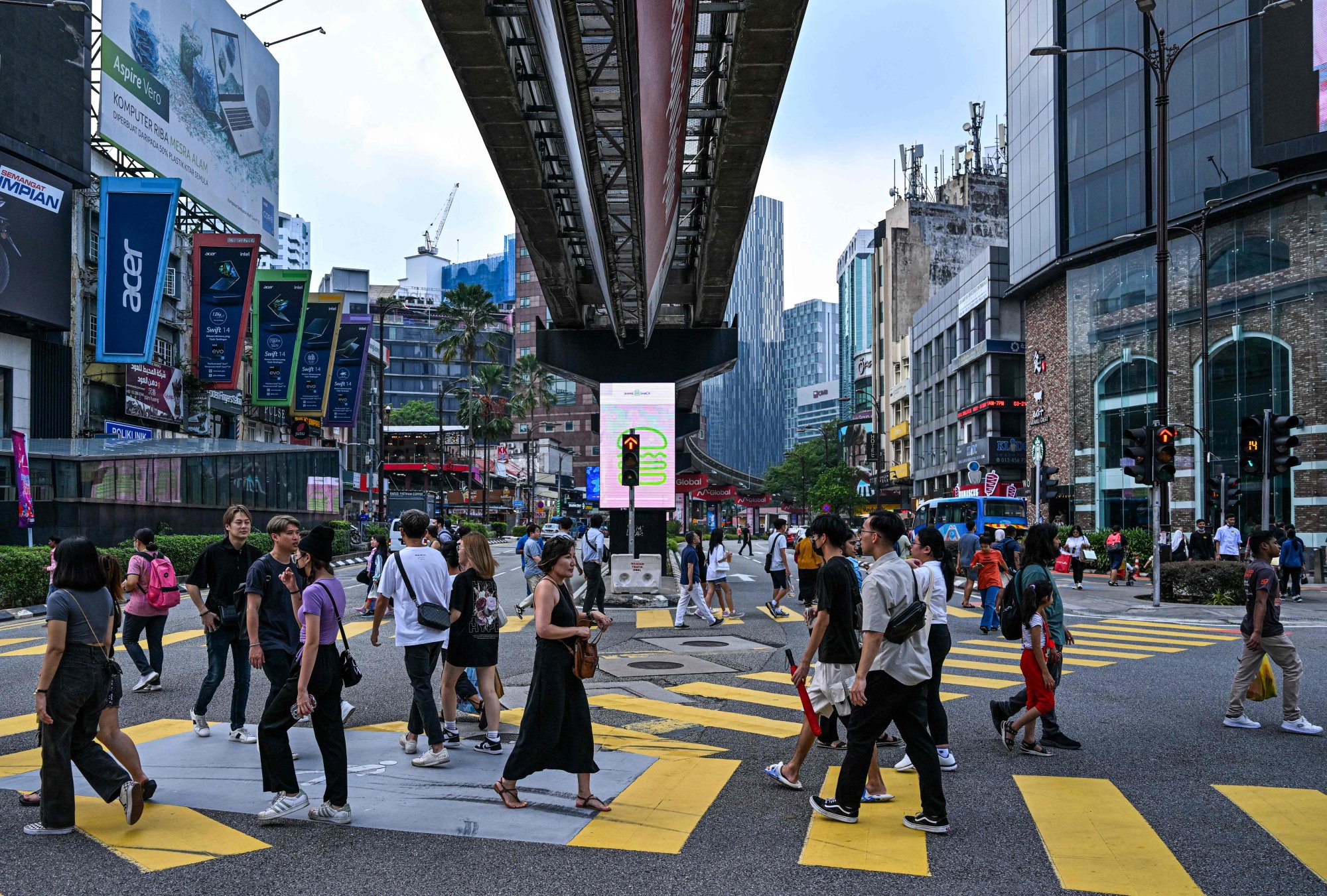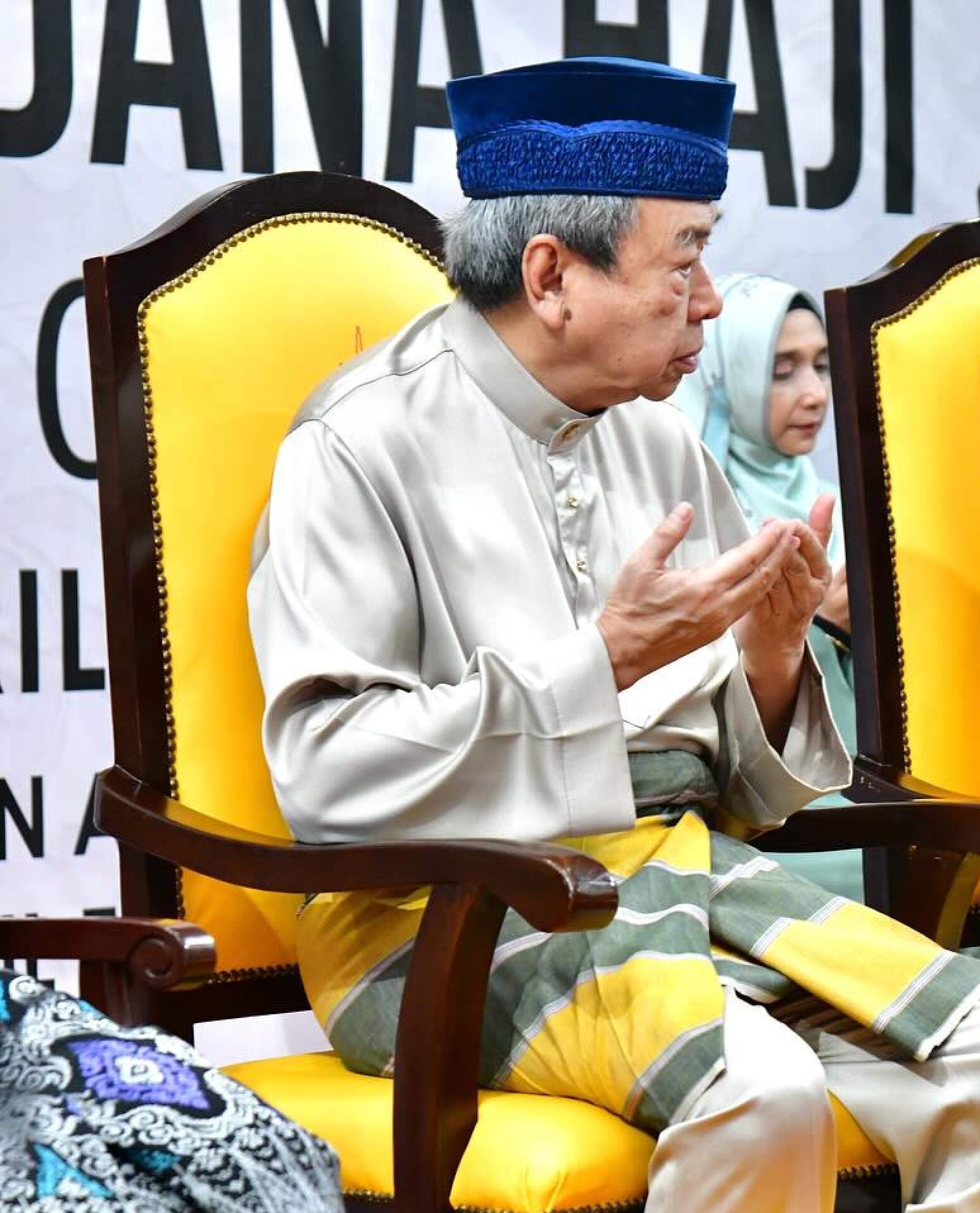
Pay hike for Malaysia’s ‘lazy’ civil servants sparks discontent, inflation worries
- Prime Minister Anwar Ibrahim accused of ignoring the private sector and wooing a key vote bank by increasing government workers’ salaries by more than 13 per cent
- His decision has also revived resentment towards the favouring of the Malay majority at the expense of Malaysia’s other races
At over 1.6 million-strong – or 5 per cent of Malaysia’s 33 million population – the Malaysian civil service is one of the largest in the world and has long been seen as a “safe deposit” of votes for any sitting government and is therefore often the beneficiary of cash handouts.
On Wednesday at the government’s Labour Day celebration in Putrajaya, Anwar vowed an over “13 per cent” pay increase, saying it was long overdue after 12 years of an effective wage freeze for civil service employees.
“This increase will cost the government more than US$2.1 billion,” Anwar said in his announcement. “The amount is big, and this is a decent increase, and among the best in history.”
Microsoft invests US$2.2 billion in Malaysia, as tech giants eye Southeast Asia
Though in line with his administration’s goal to raise livelihoods after years of stagnant salaries, the decision was panned by many other Malaysians who accuse the government of failing to drive through a progressive wage policy for the private sector and instead pandering to a difficult but large constituency.
“It is a populist move to try and get support from all the civil service when we know that the civil service is not fully on board with Anwar’s administration,” political analyst James Chin told This Week in Asia.
Anwar – who is also finance minister – has pegged back inflation from 4.7 per cent to the current level of 1.8 per cent. The unemployment rate has similarly dropped gradually from 3.6 to 3.3 per cent in the same time frame.
Understanding the risk of his decision, the prime minister told Bernama that the government would be closely monitoring the inflation rate when the salary hike comes into force in December.
“Even if it increases, it will be manageable because as we know, our inflation is the lowest in Asia,” Anwar said.

The absence of a private sector pay deal in the 2024 budget, a policy inspired by Singapore’s Progressive Wage Model, has also irked critics who say the pilot phase between June to September is on a voluntary basis and unlikely to lead to overall salary increases.
Economy Minister Rafizi Ramli justified that move, saying the decision was taken to protect companies in a fragile economy.
“If we make it mandatory, some [employers] will go out of business,” Rafizi said in January, adding that 97 per cent of businesses in Malaysia are micro, small and medium enterprises.
The latest salary increase follows a government cash handout of 2,000 ringgit (US$420) last February to civil servants followed by another 500 ringgit (US$105) in April in the name of Eid festivities.
Cash payments have long been criticised by those in the private sector as failing to match the perceived performance of the civil service which is largely seen as slow and inefficient.
Backlash to Najib’s house arrest bid rains on Malaysian PM Anwar’s PKR parade
Largely conservative and resistant to change, the high-stakes tug of war between the politicians and the civil service manifested itself in the failure of the 2018-2020 Pakatan Harapan (PH) government to enact reform.
“That impeded PH’s ability to deliver on its agenda and eventually compounded the political crisis that led to its collapse,” said Kai Ostwald, an Associate Senior Fellow of the Malaysia Studies Programme at ISEAS – Yusof Ishak Institute.
Opposition to the policy led to talks about the existence of “deep state” elements in the civil service working to undermine the government – rumblings which have never been proven but are widely repeated.
Malaysians largely accept that civil servants lean towards the monoethnic and Islamist camp in the opposing Perikatan Nasional coalition.
Allegations of ineptitude and laziness are also a point of contention in multiracial Malaysia where it is seen as a criticism of the Malay community, which makes up over 78 per cent of the country’s 1.6 million civil servants and 80 per cent of top decision-making positions.

In February, the Sultan of Selangor, Sultan Sharafuddin Idris Shah, one of the nine monarchs of Malaysia told civil servants in his state to be proactive and expedite their service for the benefit of all.
“I don’t want the negligent and lazy attitude to continue to be practised by civil servants so that many development projects are delayed or face problems,” he said at the opening of the state assembly.
Elsewhere, Malaysians have been complaining about the length of time and red tape they had to go through to renew their passports which went from a two-hour affair before the pandemic to something that could take up an entire day.
“I have no issue if their performance increased in line with the pay rise, but I have lost days at the immigration office trying to sort out my spouse visa,” said Maria Cheng, who have been repeatedly given conflicting information about the procedure.
“They refused to remedy the problem there and then and asked me to start over on another day.”
‘State within a state’: Sarawak seeks autonomy in Malaysia in age of nationalism
Aware of the perception issue towards the civil service, Anwar in his announcement on Wednesday added a caveat for the salary hike, setting his sights on those underperforming.
“If their work record is nothing to be proud of, lazy, often late to work, not focusing well, they will be monitored and not rewarded as promised,” he said.
Anwar’s pay promise has revived resentment towards the favouring of the Malay majority – a policy known as Bumiputra – at the expense of Malaysia’s other races.
“The sense of exclusion and perception of unfair opportunity is particularly acute among Chinese and Indian Malaysians, as well as the indigenous peoples of Sabah and Sarawak who formally share preferential Bumiputra status with the predominantly Peninsula-residing Malays,” Lee Hwok Aun of ISEAS – Yusof Ishak Institute said in a 2023 study on the diversity in the country’s civil service.

